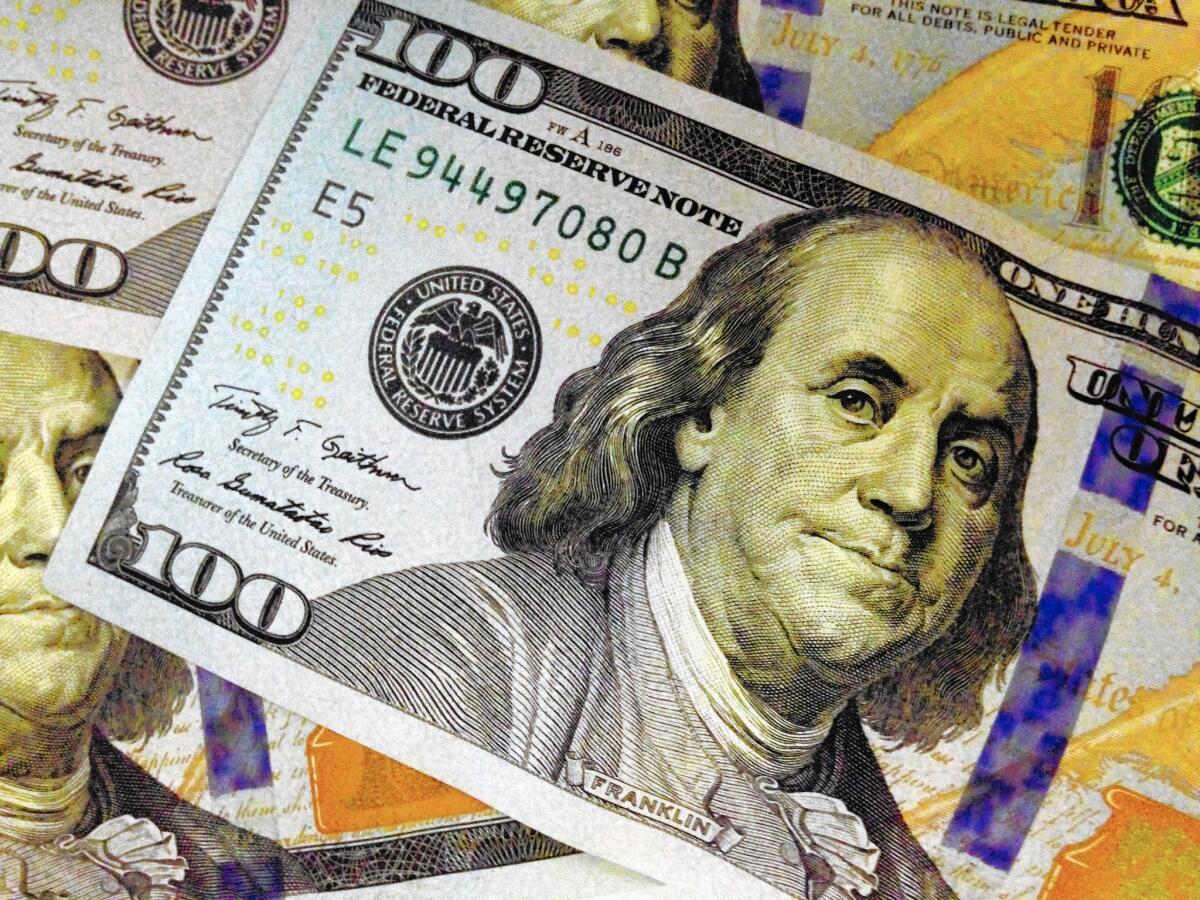Column: A big political battle over Dodd-Frank financial reforms is coming in 2016

- Share via
Forgive and forget. Or just pretend that banks’ greedy and reckless behavior never happened.
That seems to be the sentiment behind what’s certain to be one of the biggest political battles in 2016: whether we should roll back financial reforms put in place after the financial meltdown that nearly brought the global economy to its knees.
At issue is what’s known as Dodd-Frank, a.k.a. the Dodd-Frank Wall Street Reform and Consumer Protection Act, signed into law in 2010 as a response to financial firms’ central role in jeopardizing — and in some cases devastating — the jobs, homes and livelihoods of millions of Americans.
See more of our top stories on Facebook >>
The goal of the law was to rein in risky practices that exposed banks and other lenders to staggering losses, prompting the government to step in with billions of dollars in taxpayer-funded bailouts. To fail to do so, officials and economists said at the time, would have made a worldwide depression a near certainty.
Yes, it was that bad.
Now, however, Republican lawmakers have declared war on Dodd-Frank, saying the law was an overreaction to a situation that wasn’t as dire as people claimed.
Rep. Jeb Hensarling (R-Texas), chairman of the House Financial Services Committee, said this month that the time has come to repeal “huge swaths of Dodd-Frank.”
His main beef is that the 2,300-page law created unnecessary rules and slowed economic growth. That can be fixed, he said.
“You will see a visionary piece of legislation laying out the Republican vision for banking and capital markets,” Hensarling promised.
He didn’t elaborate, but it’s reasonable to assume that the Republican vision will include less regulation of financial-services firms and a greater willingness to let the marketplace hold banks accountable for bad behavior.
Tom Feltner, director of financial services for the Consumer Federation of America, said that’s a recipe for trouble.
“We wouldn’t have gotten into the situation we got into seven years ago if the marketplace was sufficient to protect consumers,” he told me. “The harms we saw at that time are clear evidence that system wasn’t working.”
Dodd-Frank isn’t perfect. On the plus side, it created the Consumer Financial Protection Bureau, which repeatedly has demonstrated its value by holding financial firms accountable for questionable activities. The agency says it has brought more than $10 billion in relief to beleaguered consumers since 2011.
At the same time, critics say Dodd-Frank didn’t go far enough in preventing financial institutions from becoming “too big to fail.” It leaves open the possibility that taxpayers again can be called upon to ride to the rescue with bailout bucks.
Banks gripe that the law’s provisions have required them to spend millions of dollars complying with bureaucratic rules rather than focus on increasing revenue and meeting customers’ needs. Smaller banks say Dodd-Frank treats them the same as larger firms that face greater risk, making it difficult to do business.
Jeff Plagge, chairman of the American Bankers Assn., testified in Congress that the reform law’s obligations mean “fewer products are offered to customers.” That translates to less credit being available to communities. “Less credit means fewer jobs, lower income for workers and less economic growth,” Plagge said.
Like healthcare reform, this is one of those big-ticket issues that would benefit from bipartisan tweaking but, in the current political environment, is instead addressed with a brute-force, all-or-nothing mentality.
Sally Greenberg, executive director of the National Consumers League, called this approach extremely shortsighted.
“Dodd-Frank benefits all consumers — Republicans and Democrats,” she said. “It provides protections that are intended to prevent another financial collapse.”
Perhaps supporters and critics of the law can come together on changes aimed at easing the regulatory burden on smaller financial institutions. It’s indeed a challenge for such companies to cope with numerous rules that may have little to do with their operations.
As it stands, Dodd-Frank defines any bank with more than $50 billion in assets as too big to fail, and thus worthy of greater regulatory scrutiny. Some in Congress would prefer to see that threshold raised to $500 billion. It’s a conversation worth having.
There’s little benefit, however, in Republicans repeatedly threatening to shut down the Consumer Financial Protection Bureau. It’s foolish to act as though financial firms have earned our trust.
Since 2009, banks and other lenders have paid more than $200 billion to settle charges of violating various laws and regulations. Some parental supervision is clearly warranted.
“A law like Dodd-Frank is always going to be challenged by people who don’t like regulation,” Greenberg said. “In many cases, those are people who want profit at any cost.”
The fight over Dodd-Frank will focus on what’s best for business. All parties should keep in mind, however, that consumer spending accounts for about two-thirds of our economic activity.
Businesses do well only when consumers have money to spend. That, ultimately, is what Dodd-Frank is meant to protect.
David Lazarus’ column runs Tuesdays and Fridays. He also can be seen daily on KTLA-TV Channel 5 and followed on Twitter @Davidlaz. Send your tips or feedback to [email protected].
MORE FROM DAVID LAZARUS
Battle with Bank of America provides a ‘Wonderful’ lesson
Supreme Court’s arbitration ruling is another blow to consumer rights
Europe and U.S. have different approaches to protecting privacy of personal data
More to Read
Inside the business of entertainment
The Wide Shot brings you news, analysis and insights on everything from streaming wars to production — and what it all means for the future.
You may occasionally receive promotional content from the Los Angeles Times.











